Australian Pain Society NEWSLETTER


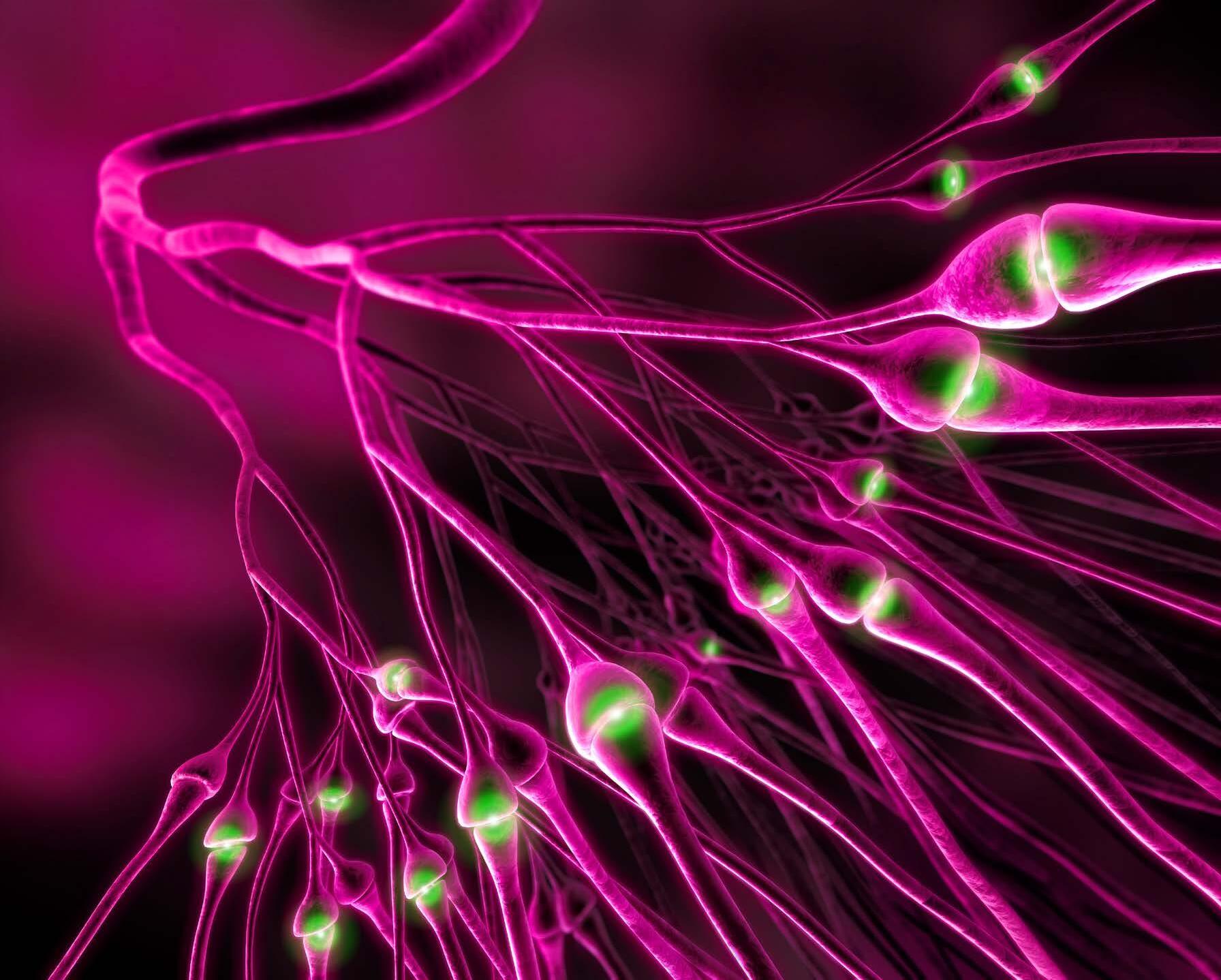
VOLUME 41, ISSUE 2, MARCH 2021
BLOG WEB
2 AUSTRALIAN PAIN SOCIETY NEWSLETTER VOLUME 41, ISSUE 2, MARCH 2021 CONTENTS Contents Editor’s note 3 President’s Report 4 Webinar 6 ASM 2021 7 The Royal Commission into Aged Care 13 Recent Publications 18 National Pain Services Directory 20 Better Pain Management 21 Position Vacant and New Members 23 Membership Renewal 24 Events & Notifications 25 FYI 28 Calendar of Events 30 Vision, Mission & Priorities 32 APS Directors 33 Office Bearers 34
Editor’s Note
As we continue 2021 into March, I, like many others, have been reflecting on the events of the last 12 months. This time last year, the Society was gearing up for our 40th Annual Scientific Meeting (ASM) in Hobart. Our March 2020 edition of the eNewsletter was jam packed with conference-related material. On March 12, just three weeks out from the ASM, our President Anne Burke released a video message excitedly announcing that everything was on track for a “crackerjack” program. But just four days later, another video message was released announcing that the ASM was unable to proceed.
Following the unfortunate cancellation of the 2020 ASM, the Society wanted to ensure that things did not repeat themselves in 2021. Many people have worked incredibly hard to put the 2021 ASM program together, so I strongly encourage all members to register to attend this year’s event. While moving to a fully virtual ASM will be a different experience from what we may be used to, I am really looking forward to the opportunity.
A key feature of this month’s eNewsletter is a reflection on the Royal Commission into Aged Care Quality and Safety from our Immediate Past President Fiona Hodson and eNewsletter Assistant Editor Joanne Harmon. I really want to thank Fiona and Joanne for sharing their experiences in being involved as part of the Royal Commission – Fiona presenting on behalf of the Society in a forum in November 2019, and Joanne attending a preliminary hearing earlier in the same year.
The Society has, and continues to, dedicate significant time and resources in this space. The previously released ‘Pain in Residential Aged Care Facilities Management Strategies’ is being converted to an e-resource, while a collaboration with the National Aging Research Institute has been formed to co-design a toolkit to implement the guidelines that align with the
Lincoln Tracy
strategies outlined in the book. It is fantastic to see and hear about all the very important work the Society is doing in an area that affects so many people.
This edition also features a recent publication from New Zealand Pain Society member Hemakumar Devan and colleagues. Their article details a protocol for the iSelf-help trial, a non-inferiority randomized controlled trial looking at the clinical and cost-effectiveness of an online group-based pain management program in improving pain-related disability in people with persistent pain. This is a particularly timely paper, given the increases in the use of telehealth over the last year due to COVID-19. It is particularly exciting to see that the program will be co-created with people with persistent pain in a culturally appropriate manner. I wish Hemakumar and the rest of the team all the best with this work and look forward to seeing the results!
Finally, I would like to take the opportunity to spruik One Thing, an initiative of Society members Josh Pate and David Kennedy. One Thing is a platform where speakers can share the ‘one thing’ that they really want others to know about pain. Season one is underway and has featured great episodes from individuals such as Lorimer Moseley and Christine Chambers. You can find more information about the platform and all of the episodes at onething. painsci.org.
Until next time,
Lincoln Editor

3 VOLUME 41, ISSUE 2, MARCH 2021 AUSTRALIAN PAIN SOCIETY NEWSLETTER
EDITOR’S NOTE
President’s Report
Hi Everyone,
Happy new year! I hope you all managed some downtime with family and friends over the festive season and that you’re feeling refreshed and ready to embrace all that 2021 brings your way.
This is my first e-news update for 2021 and my last as APS President. I’m really proud of the things that we’ve achieved in the past two years and I’m excited to see what’s ahead for this amazing Society. I will of course provide a detailed report at the Annual General Meeting (AGM) next month but for now, here’s a brief update on APS happenings over the past few months.
EDUCATION
2021 will be another year of educational firsts for our Society. This year the APS will hold our Annual Scientific Meeting (ASM) in a virtual format, launch our brand new ‘Pain Management in Aged Care’ preconference workshop, and release an e-version of our ‘Pain in Residential Aged Care Facilities: Management Strategies’ resource. Our ‘Fundamentals of Pain’ preconference workshop has also been revamped and both preconference workshops are being prepared for a wider rollout in the near future.
ADVOCACY
Although the Christmas period traditionally offers some slight respite from response writing, we’re now back in full swing and have several items being prepped as we speak. Recent submissions include:
• Royal Australian and New Zealand College of Obstetricians and Gynaecologists Endometriosis Survey
• Productivity Commission into Mental Health
• Australia & New Zealand Musculoskeletal Clinical Trials Network – Australian Living Guideline for the Pharmacological Management of Inflammatory Arthritis
• Aged Services Industry Reference Committee consultation
RESEARCH
Following a highly competitive application round for the APS/APRA/CFK Clinical Research grant, I’m pleased to advise that the successful project, titled “Co-designing a social media campaign to improve pain science literacy in adolescence”, will be led by Chief Investigator Hayley Leake.

SERVICES AND RESOURCES
The update of the position statement regarding the role of psychology in the management of persistent pain is now complete and will be presented to members at our AGM in April.
MEMBERSHIP
As per my recent updates, the APS is striving to increase our repertoire of educational offerings and to engage more actively with our members. Over the past two years we have adopted a deliberate focus on supporting early- and midcareer individuals (clinicians and researchers) and fostering links to facilitate the conduct of translational research. A range of options to expand these activities are currently being modelled in the innovation lab, so stay tuned for more on this over the coming months as some exciting possibilities are fleshed out.
Inside this newsletter edition you will see a call from Painaustralia asking for information to update their National Pain Services Directory (an initiative funded by the Department of Health).
In November 2020 we asked for your thoughts about whether to maintain the APS Facility Directory. We only received a few responses. In light of this, at our meeting in February 2021, the APS Board resolved to de-activate the APS Facility Directory in favour of linking back to the refreshed Painaustralia National Pain Services Directory. We remain committed to maintaining
4 AUSTRALIAN PAIN SOCIETY NEWSLETTER VOLUME 41, ISSUE 2, MARCH 2021 PRESIDENT’S REPORT
A/Prof Anne Burke
the option for members to benefit from our “Public Listing of APS Members”: https://www. apsoc.org.au/public-listing
GOVERNANCE
As per my recent reports, the APS board continually strives to improve our governance practices. Recent changes include a revision of the ASM sponsorship prospectus, tightening of regulations around sponsorship, cessation of Corporate Subscribers, and certification of self-evaluation with the Australian Ethical Health Alliance. Together, these changes will help ensure that funding sources objectively align with the ethos and values of our organisation. Work also continues on a new ‘Governance’ section for our website to make it easier for members to find information relating to our practices and this will be released in the coming months.
Well, that’s it from me for now. I will provide a more detailed report at the AGM next month so get there if you can.
If you’ve already registered for the ASM – well done and I look forward to connecting with you there.
If you haven’t registered yet - what are you waiting for? Jump online, book yourself in, and join us for what I’m sure will be an amazing conference experience.
Take care and I look forward to seeing you soon.
Anne APS President
5 VOLUME 41, ISSUE 2, MARCH 2021 AUSTRALIAN PAIN SOCIETY NEWSLETTER PRESIDENT’S REPORT
APS WEBINARS
Provided by the Australian Pain Society
RECORDED WEBINARS NOW AVAILABLE

Gut Feelings: The Microbiota-Gut-Brain Axis as a key Regulator of Visceral Pain
by Professor John Cryan
Neuropsychological Changes in Complex Reginal Pain
by Dr Janet Bultitude
Risk stratification and targeted treatment: Effective for musculoskeletal motor vehicle crash injury?
by Professor Michele Sterling
Changes in the scale of opioid consumption and cannabis in Australia by wastewater analysis
by Dr Cobus Gerber
Additional information about the webinars is available at APS Webinar Website.
If you have missed the previous webinars provided by the Australian Pain Society, all webinar recordings (including the Q&A) are available in the Members Only Portal of the APS website.


Not a member and wish to purchase a copy of the webinar?

Email us at apswebinars@dcconferences.com.au
*APS Webinars are suitable for Health Professionals/ Researchers only.
6 AUSTRALIAN PAIN SOCIETY NEWSLETTER VOLUME 41, ISSUE 2, MARCH 2021
WEBINAR
APS 2021 IS GOING VIRTUAL
The APS is 100% committed to bringing their members and delegates a conference in 2021. The decision was made late last year that the safest and most reliable way to do this is in a virtual only format.
The SPC has now re-worked our traditional format to better suit a virtual platform and we are excited about the content and quality of next year’s program.
Based on survey feedback from APS members and past-delegates, the Annual Scientific Meeting (ASM) has been condensed to a 2-day program that will be followed by a 4-part webinar series specifically designed to augment the main conference program. This way, we can be sure that we best meet your needs around online learning whilst also preserving the breadth and depth of information that is traditionally offered in our ASM.
The APS 2021 virtual ASM will now run from 19 - 20 April 2021, with the 4-part webinar series occurring on the last Tuesday of each month April–August
(NB: there will be no webinar in June due to IASP 2021).
Pre-Conference Workshops will be held online, on Sunday 11 April 2021.
Registrations for the conference will include access to all webinars. Pre-conference workshops are additional.
We are excited to connect safely with you online this year and can assure all delegates that the program will include the opportunity to network, collaborate and learn.
Registrations are now open
We understand that running a virtual conference means asking for your attention while you juggle work and home life as well, and for this reason, registered delegates will have access to all recorded conference and webinar sessions for the 12 months following APS 2021.
We are immensely grateful to the National Convention Centre Canberra (NCCC) , ACT, who have been flexible, understanding and considerate in their dealings with our 2021 venue booking.
We look forward to taking APS 2023 to the NCCC, ACT.
Should you have queries, please contact the Conference Secretariat.
7 VOLUME 41, ISSUE 2, MARCH 2021 AUSTRALIAN PAIN SOCIETY NEWSLETTER ASM 2021
REGISTRATIONS NOW OPEN!
Register now for the first APS VIRTUAL Conference. Be a part of Australia’s only multidisciplinary conference offering insights into the complex nature of pain management from a variety of medical, nursing and allied health perspectives.
To register please click here!
The APS 2021 virtual ASM will now run from 19 - 20 April 2021, with the 4-part webinar series occurring on the last Tuesday of each month April–August (NB: there will be no webinar in June due to IASP 2021).
Pre-Conference Workshops will be held online, on Sunday 11 April 2021.
Registration Fees
FULL REGISTRATION (Conference and 4-Part Webinar Series)
Member
Non-Member
Concession/ Student Member
DAY REGISTRATION (Conference Only)
Member
Non-Member
Should you have queries, please contact the Conference Secretariat.
8 AUSTRALIAN PAIN SOCIETY NEWSLETTER VOLUME 41, ISSUE 2, MARCH 2021
Early Bird Before 9 March 2021 Standard From 10 March 2021 Last Minute From 15 April 2021
AU$380 AU$430 AU$455
AU$695 AU$745 AU$795
AU$115 AU$165 AU$195
AU$200 AU$225 AU$235
AU$360 AU$385 AU$415
ASM 2021
PROGRAM NOW AVAILABLE
The SPC has re-worked our traditional format to better suit a virtual platform and we are excited about the content and quality of next year’s program.
The APS 2021 virtual ASM will now run from 19 - 20 April 2021, with the 4-part webinar series occurring on the last Tuesday of each month April–August (NB: there will be no webinar in June due to IASP 2021).
Pre-Conference Workshops will be held online, on Sunday 11 April 2021.
The extensive program includes pre-conference workshops, international keynote speakers, national speakers, topical sessions and, for the first time, a 4-part webinar series.
We understand that attending a virtual conference means juggling work and home life, and for this reason, registered delegates will have access to all recorded conference and webinar sessions for the 12 months following APS 2021.
Follow the links to start planning your conference experience today!
PROGRAM OVERVIEW
WEBINAR SERIES
KEYNOTE SPEAKERS
TOPICAL SESSIONS
PRE-CONFERENCE WORKSHOPS
TRAINEE SESSION
Registrations are now open. To register please visit the conference website
9 VOLUME 41, ISSUE 2, MARCH 2021 AUSTRALIAN PAIN SOCIETY NEWSLETTER
ASM 2021
BECOME AN APS MEMBER AND SAVE
Get in early and secure your place at Australia’s only multidisciplinary conference offering insights into the complex nature of pain management from a variety of medical, nursing and allied health perspectives. To register please click here!
Considering the benefits of your membership?
Save on your APS 2021 registration fee!
Cost
Non-Member Registration Price VS
Becoming an APS Member
APS Student Member Registration Price
$745 OR
Being a member saves you up to $205 after membership fees!
Only $165 Being a member saves you $580 after membership fees!
Colleagues interested in becoming members and start saving on their registrations too? Tell them to become an APS Member and save right away!
10 AUSTRALIAN PAIN SOCIETY NEWSLETTER VOLUME 41, ISSUE 2, MARCH 2021
ASM 2021
You are invited to attend the Acute Pain Day Pre-Conference Workshop
I’ve Got Your ‘Back’
This workshop will focus on back pain, from both acute and chronic pain perspectives. Topics will include; medications, surgical intervention evidence, physiotherapy interventions, gerontology management and back pain in pregnancy.
This workshop is targeted to all health care workers, nursing, allied health and medical, including GPs’.
When: Sunday 11 April 2021, 8.30am –5.00pm
Where: Virtual
For further information please click here
You are invited to attend the Pain Management in Aged Care Pre-Conference Workshop
This NEW workshop will discuss the best practice of pain management in the aged with adherence to the Aged Care Quality Standards Framework as well as best practice recommendations from various therapeutic frameworks e.g. RACGP, Palliative Care, National Prescribing Service.
Further, this interactive workshop will draw on the expertise of the audience, instigating multidisciplinary discussions to identify current barriers and a road map in going forward.
When: Sunday 11 April 2021, 8.30am–12.30pm
Where: Virtual
For further information please click here
You are invited to attend the Pain in Childhood
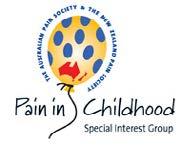
Pre-Conference Workshop
This workshop aims to provide clinicians managing persistent pain in young people with updates and practical tips. In our first session we will explore prognostic factors for pain and disability in young people at presentation, then move on to the influence of parents on outcomes in children with persistent pain. This will be followed an introduction to the framework used at Children’s Hospital Westmead for understanding the body systems that mediate stress-induced somatic symptoms, including pain.
The second session will be an interactive multidisciplinary multistate panel case presentation taking the audience through an ED presentation through inpatient assessment, formulation, and management of a complex patient in an outpatient rehabilitation model.
When: Sunday 11 April 2021, 8.30 am–12.30pm Where: Virtual
For further information please click here
11 VOLUME 41, ISSUE 2, MARCH 2021 AUSTRALIAN PAIN SOCIETY NEWSLETTER ASM 2021
You are invited to attend the Fundamentals of Pain PreConference Workshop
This workshop is a succinct overview of the physiology, clinical assessment, and management of pain. It is aimed at GP’, specialist and allied health clinicians looking for an introduction to, or update on, persistent pain management.
When: Sunday 11 April 2021, 8.30 am–12.30pm
Where: Virtual
For further information please click here
You are invited to attend the Pharmacology
in Pain Management Pre-Conference Workshop
Management of Low Back Pain: What’s in Your Tool Box?
This workshop will address topics associated with early identification and management options of low back pain. The workshop will focus on current evidence based pharmacological options in managing low back pain, exploring the safety and efficacy of current treatment options, discussing patient expectations of the role they play and the role of the clinician in rationalising their usage.
There will be opportunities for questions and networking with peers, so that current evidencebased science can be optimised in everyday practice.
When: Sunday 11 April 2021, 1.30pm–5.00pm
Where: Virtual
For further information please click here
You are invited to attend the Basic Pain Research

Pre-Conference Workshop
This workshop will showcase the latest in Australian basic pain research from early career and senior researchers, and provide a forum for the BPR network to discuss mechanisms of nociception and pain across all levels of investigation: from molecular and cellular analyses, to studies in animals and humans (pre-clinical or clinical). The workshop is open to all basic researchers and clinician scientists, and this year has a particular focus on studies in osteoarthritis that provide a new mechanistic understanding or reveal new targets that may support the management of inflammatory and neuropathic pain.
When: Sunday 11 April 2021, 1.30pm–5.00pm
Where: Virtual
For further information please click here
You are invited to attend the Physiotherapy in Pain Management
Pre-Conference Workshop
So You Think You Know What Psychologically Informed Practice Is!
This workshop will be highly practical – provoking attendees to consider HOW they deliver treatment to their patients. This workshop will be immediately useful in clinical practice as we delve into how to incorporate the best psychological approaches into our own style of intervention.
When: Sunday 11 April 2021, 1.30pm–5.00pm
Where: Virtual
For further information please click here
12 AUSTRALIAN PAIN SOCIETY NEWSLETTER VOLUME 41, ISSUE 2, MARCH 2021 ASM 2021
THE ROYAL COMMISSION INTO AGED CARE FINAL REPORT ENTITLED ‘CARE, DIGNITY AND RESPECT’ HAS BEEN RELEASED
The report outlines in harrowing detail the current provision of aged care here in Australia from 10,500 written and telephone submissions, firsthand reports, 600 witness statements, and research. Hard copies can be freely obtained via the Royal Commission website. However, be warned, as in its entirety there are nine books.
There has also been substantial media coverage summarizing the more scandalous details of the report, such as the lack of joint agreement between the Hon GT Pagone QC and Commissioner Lynelle Briggs AO on who will govern a new model of Aged Care. However, one core aspect both commissioners agree on is the substandard nature of current Aged Care provision.
Substandard care has taken on a myriad of forms such as physical and sexual abuse as well as excessive use of chemical and physical restraints. Numerous accounts were provided of inexpert dementia care, by unregulated and uneducated carers, leading towards unnecessary distress. Central to the core within much of the evidence provided to the Royal Commission was that of pain. Older persons not receiving evidence-based wound care, end of life care, and/or palliative care and instead suffering with their experiences of unnecessary pain or indignity was common. In addition, many examples stated Aged Care providers not prioritizing support for people to maintain or regain mobility, continence, or independence.
Given the extensive nature of the reforms provided, and the amount of reading required to cover them all, it is no wonder many organizations have responded to the release of the report by development of working groups to break down the information.
There are four main points to consider following the release of the report.
1. A NEW AGED CARE SYSTEM
A new Act for Aged Care is required for the proposed fundamental reforms to be enacted. This new Aged Care Act will not only enshrine the rights of older persons who are seeking or receiving care, but will be based on a universal right to high quality care. Inclusive of a new Act is the definition of aged care as ‘being a place to provide support and care for people to maintain their independence as they age’. This is inclusive of support and care to ameliorate aged-related deterioration in their social, mental, and physical capacities to function independently. Placing people at the center of aged care also includes support for informal carers and recognition of their integral role in aged care.
2. INCREASED GOVERNANCE OF AGED CARE
New robust governance systems are required to ensure people can receive care that is safe, of high quality, and relevant to their needs. Previous policy developments have encouraged market-based competition between providers of aged care, with the expectation this will provide innovation and quality improvement. The Australian Government has failed to undertake an active governance role in this system, instead reacting tardily to adverse developments. It is at this point the Commissioners disagree on how to best address this issue, with Commissioner Pagone recommending independence from Ministerial direction and involve an independent statutory body such as the Australian Aged Care Commission as a system governor, administrator and regulator. While Commissioner Briggs supports greater independence in areas such as quality regulation, she is concerned the embedded cultural issues within current institutions are ingrained but believes reform existing structures will deliver changes more
13 VOLUME 41, ISSUE 2, MARCH 2021 AUSTRALIAN PAIN SOCIETY NEWSLETTER THE ROYAL COMMISSION INTO AGED CARE
quickly. As a result, Commissioner Briggs recommends a Government Leadership model to enable greater independence in areas such as quality regulation and pricing while maintaining governmental stewardship and leadership. Both concur on a recommendation for stronger accountability by the establishment of an Inspector-General of Aged Care.
3. WORKFORCE
Aged Care is one of Australia’s largest service industries. Comments were made on the need for the aged care workforce to be professionalized, with a call by Commissioner Briggs for the aged care workforce to develop as its own profession, with appropriately structured career paths, consistent occupational groups, job design, pathways, training, and development programs with leadership embedded within. A recommendation was made for mandatory education of the workforce in units such as dementia and palliative care and for all aged care workers to be registered, in line with other health care professions.
The new Aged Care Act will require providers to ensure the nursing and personal care workers have the experience, qualifications, skills, knowledge, and training required to perform the work they undertake. Mandated hours of staffing care have been proposed. A recommendation is also provided for Aged Care providers who fail to undertake this duty will expose them and their key personnel to a civil penalty. This will bring Aged Care into a level commensurate with that of the current health care system.
4. COSTS
A better system is going to cost more, with recommendations made for more sustainable capital financing for aged care, with strengthening of prudential regulation and financial oversight. Many complex recommendations are proposed, with both Commissioners in support of a levy on taxable income to finance aged care. However, both differ on its optimal design. Regardless, both commissioners are firm in their agreement for aged care provision to remain universally available, irrespective of ones’ means. It is pointed out the implementation of an earmarked aged care levy will provide a clear and public commitment to ongoing funding of aged care complete with the establishment of a social contract which is consistent with the recommendations of the report.
There are many other aspects the commission has focused on, such as nutrition and dental care of the older person. There are 148 recommendations in total and in all, an extensive plan is provided to change Australia’s Aged Care system. What remains to be seen is how much will be implemented and when. Certainly, the plan is for a transformed Aged Care system to be implemented over the next five years.
14 AUSTRALIAN PAIN SOCIETY NEWSLETTER VOLUME 41, ISSUE 2, MARCH 2021 THE ROYAL COMMISSION INTO AGED CARE
ROYAL COMMISSION INTO AGED CARE QUALITY AND SAFETY BACKGROUND
The Royal Commission into Aged Care Quality and Safety submitted its final report on February 26, 2021, which was subsequently tabled by the Australian Government on March 1, 2021. The Royal Commission into Aged Care Quality and Safety was established on October 8 2018 by the Governor-General of the Commonwealth of Australia, His Excellency General the Honourable Sir Peter Cosgrove AK MC (Retd).
The Honourable Tony Pagone QC and Ms Lynelle Briggs AO were appointed as Royal Commissioners. The Letters Patent for the Royal Commission, which formally appoint the Royal Commissioners, also outline the Commission’s terms of reference.
The Commissioners delivered an interim report on October 31 2019, a special report on COVID-19 and aged care on October 1 2020, and submitted their final report on February 26 2021.
The main common concerns stemming from the process of public submissions was of staffing issues, isolation, and the unmet needs of the older person. The final report, delivered over a total of eight volumes, has been published, addressing issues ranging from general submissions, to diversity, workforce, program design, governance, and capital financing as well as two publications outlining consultations. The interim report titled Neglect covered much, but not all, of the work of Commissioners Richard Tracey AM, RFD, QC and Lynelle Briggs AO through to September 2019. It found that the aged care system failed to meet the needs of our older citizens in the delivery of safe and quality care.
The Royal Commission itself has faced challenges with the death of Richard Tracey AM, RFD, QC, and the impacts of COVID-19 (both in the aged care sector and in the general population) , as well as a cyber-security incident with the document management provider, Law In Order
The Office of the Royal Commission into Aged Care Quality and Safety in December 2020 released the sobering statistic of 39.2% people in aged care experiencing elder abuse in the form of neglect, emotional abuse, or physical abuse.
The Royal Commission conducted hearings in all capital cities and some regional locations. It received 10,574 submissions, 6,800 telephone calls to the information line, and heard 641 witnesses at hearings.
In an early response, the Department of Health has indicated its view of the final report through the lens of five broad pillars:
• Home Care
• Residential aged care quality and safety
• Residential aged care services and sustainability
• Workforce; and
• Governance
The Australian Pain Society (APS)
APS made four submissions to the Royal Commission over the period September 2019 through to July 2020.
Fiona Hodson, the immediate past president of the APS, spoke to a statement provided by APS at the Newcastle forum held in November 2019. One year later in November 2020, Fiona was interviewed and was asked to share and reflect on her experience.
When asked what it was like to present a statement to the Royal Commission, Fiona responded by explaining she had been selected by the Royal Commission and afforded the opportunity to speak for five minutes during a community forum.
15 VOLUME 41, ISSUE 2, MARCH 2021 AUSTRALIAN PAIN SOCIETY NEWSLETTER
THE ROYAL COMMISSION INTO AGED CARE
I was asked to speak only for that day, and only twenty people had been selected. I was very, very happy to make a statement about pain management, workforce skills and knowledge issues and the need to incorporate pain as part of the newly revised aged care quality and safety standards. I also wanted to highlight the presence and prevalence of pain for the older person in residential aged care facilities and the general community. I also spoke about the resource we have developed on management strategies for pain in residential aged care facilities and the need to address other issues in relation to chemical restraint as opposed to appropriate pain management. I was really happy to do this, it felt like it was an important opportunity for acknowledgement of all the work APS has done in this space, and recognition was provided from it being important enough to have a person speak to it, so yes it was really validating.
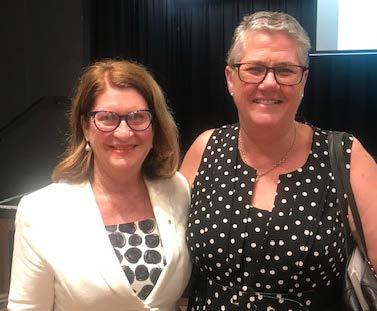
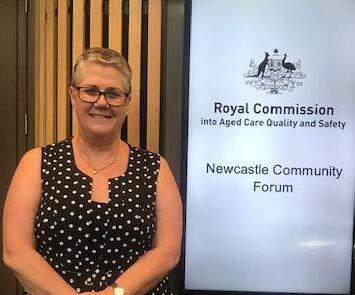
When asked to talk on how she felt attending the community forum, Fiona was very positive on the networking and liaison this opportunity had provided, …fantastic, such a great opportunity, and after I presented, I also spoke to a lot of people in attendance. They spoke to me about not realising that there were pain related resources available from the APS, and there was a broad mix of people at the community forum and this also provided myself with exposure to those who
were there representing or working in their organizations, and also to family members of an aged person. You know, it was really great to be able to not only raise pain management as a key issue, but the flow on effect was for people who were unaware that work is being done in that space. This was a big opportunity to not only have people agree pain management is really important, but also to get pain recognised as part of the aged care quality and safety standards.
Any words of advice to another person when in a similar situation?
This was an easy presentation to undertake, as APS as an organisation has already done a lot of work in that space. So, go in with your priority areas and back it up, be clear with your message and not be overly emotional by having all of your facts and figures at hand. Although a community forum is not as formal as being in the high court rooms, it is still official enough with the cameras, timing, submission process of what will be spoken to and a formal acknowledgement that you and your topic is important enough to be able to speak. Although it still felt formal, having the community presence provided a good balance. I got a chance to speak to the commissioner personally and I was able to provide her with a complimentary copy of the APS Pain in Residential Aged Care Facilities Management Strategies, 2nd Edition. Although many of the
16 AUSTRALIAN PAIN SOCIETY NEWSLETTER VOLUME 41, ISSUE 2, MARCH 2021
THE ROYAL COMMISSION INTO AGED CARE
stories presented by others were horrific, it was great to be able to hear these family’s’ stories and have a sense of importance by also having them be listened to by many. Although the aged care sector is not my main area of clinical expertise, I have taken away a greater insight into the aged care system, and I am a little more enlightened on how the system has become overly complex, and difficult for many to navigate or understand.
Where to from here?
The APS is currently working on an e-version of the Pain in Residential Aged Care Facilities: Management Strategies, 2nd Edition book for launch this year. The APS is also working collaboratively with the National Ageing Research Institute (NARI) on a co-design implementation toolkit to accompany and support the book. This work also includes broader stakeholder engagement. The Pain Management Guidelines toolkit will assist in the implementation of the book into clinical practice. This co-design project was funded by the Commonwealth to enable the toolkit to align directly with the APS Pain in Residential Aged Care Facilities: Management Strategies book.
There will also be a pre-conference workshop presentation on pain management in aged care at the next APS ASM. After the conference, the APS will also further develop this presentation as a webinar to ensure that all aged care staff are aligned with the latest evidence based best practice for pain care provision for the older person in aged care.
What is it like to attend a Royal Commission session as an observer?
Reflection by Dr Joanne Harmon
As a nurse with an interest in the care of older person in hospital, I felt the Royal Commission was a golden opportunity to learn more about aged care. I went to many hearings held here in Adelaide, but the one that stands out most in my mind’s eye was the first one I attended. This was
the preliminary hearing held on the January 18 2019 in the Commonwealth law court building. This was the first session held after the Royal Commission had been called and there were no witnesses. Having never attended any court nor a Royal Commission I was unprepared for the high amount of emotion involved. People could attend if they choose, however, there was limited seats and a lot of security. There was no guarantee for a seat and an overflow room was set up. I remember there was a lot of media present and family members. After we got through security, and just before the doors opened there was a scuffle, between security and distraught family members.
On leaving the law courts at the end of each session, and during the breaks, there were swarms of media cameras doing live interviews and updates. During later sessions on the perspectives on the aged care system and aged care in the home, I was privileged to be able to witness many accounts provided from many differencing viewpoints from family, residents, and aged care providers as well as health care workers. After attending these sessions, I was able to gain a more holistic and informed viewpoint about aged care.
A positive aspect of being present was the ability to not only see the presenters but also look around the session room and see the who’s who of aged care. Although all sessions were recorded, I quickly noted while the recording of the attendees may have looked sparse, this was because they all had sat outside of the eye of the camera and were jammed around the edges. It was also nice to be present with the families. A number of of aged care nurses were also present at many of the sessions. I would not say it is a pleasant way to spend the day, and hearing the submissions took a significant emotional toll. Some submissions were very traumatic and disturbing. In the end, I gained a more healthy and holistic perception of aged care, and I do hold a lot enthusiasm and positivity for the future of aged care.
17 VOLUME 41, ISSUE 2, MARCH 2021 AUSTRALIAN PAIN SOCIETY NEWSLETTER
THE ROYAL COMMISSION INTO AGED CARE
Thank you to New Zealand Pain Society member Hemakumar Devan and his colleagues Leigh Hale (Primary investigator), Cheryl Davies, Sarah Gerard Dean, Anthony Dowell, Rebecca Grainger, Andrew R Gray, Dagmar Hempel, Tristram Ingham, Bernadette Jones, William Leung, Jessica Mills, Barbara Saipe, Edward Shipton, and Meredith Perry for sharing the following recent publication.
Article first published online: February 4, 2021
Journal Reference: BMJ Journals
DOI: 10.1136/bmjopen-2020-046376
ABSTRACT
Introduction
Persistent non-cancer pain affects one in five adults and is more common in Māori—the Indigenous population of New Zealand (NZ), adults over 65 years, and people living in areas of high deprivation. Despite the evidence supporting multidisciplinary pain management programmes (PMPs), access to PMPs is poor due to long waiting lists. Although online-delivered PMPs enhance access, none have been codesigned with patients or compared with group-based, in-person PMPs. This non-inferiority trial aims to evaluate the clinical and cost-effectiveness of a co-created, culturally appropriate, onlinedelivered PMP (iSelf-help) compared with inperson PMP in reducing pain-related disability.
Methods and Analysis
Mixed-methods, using a modified participatory action research (PAR) framework, involving three phases. Phase I involved cocreation and cultural appropriateness of iSelf-help by PAR team members. Phase II: The proposed iSelfhelp trial is a pragmatic, multicentred, assessor-
blinded, two-arm, parallel group, non-inferiority randomised controlled trial. Adults (n=180, age ≥18 years) with persistent non-cancer pain eligible for a PMP will be recruited and block randomised (with equal probabilities) to intervention (iSelf-help) and control groups (inperson PMP). The iSelf-help participants will participate in two 60-minute video-conferencing sessions weekly for 12 weeks with access to cocreated resources via smartphone application and a password-protected website. The control participants will receive group-based, in-person delivered PMP. Primary outcome is painrelated disability assessed via modified Roland Morris Disability Questionnaire at 6 months post intervention. Secondary outcomes include anxiety, depression, stress, pain severity, quality of life, acceptance, self-efficacy, catastrophising and fear avoidance. Data will be collected at baseline, after the 12-week intervention, and at 3 and 6 months post intervention. We will conduct economic analyses and mixed-method process evaluations (Phase IIA).
Ethics and dissemination
The Health and Disability Ethics Committee approved the study protocol (HDEC18/CEN/162). Phase III involves dissemination of findings guided by the PAR team as outcomes become apparent.
Declaration
Hemakumar Devan has received funding from Centre for Health, Activity, and Rehabilitation Research (CHARR), School of Physiotherapy, University of Otago, New Zealand for his Postdoctoral fellowship.
Funding
This research project is funded by the Health Research Council of New Zealand (PI – Prof Leigh Hale).
18 AUSTRALIAN PAIN SOCIETY NEWSLETTER VOLUME 41, ISSUE 2, MARCH 2021 RECENT PUBLICATIONS
Clinical and cost-effectiveness of an online-delivered group-based pain management programme in improving pain-related disability for people with persistent pain—protocol for a non-inferiority randomised controlled trial (iSelf-help trial)
Have you had an article accepted for publication this year?
The Australian Pain Society (APS) is keen to share publications from our members with their colleagues via our eNewsletter. If you’ve had an article accepted or published recently, please contact our Assistant Editor Joanne Harmon via the APS Secretariat ( aps@apsoc.org.au ) with the title, authors, and reference (i.e., journal, volume, and DOI) of your article and request the submission template. We would love it if you also supply a short commentary (300 words max) to give our readers the gist of the article.
19 VOLUME 41, ISSUE 2, MARCH 2021 AUSTRALIAN PAIN SOCIETY NEWSLETTER RECENT PUBLICATIONS
NATIONAL PAIN SERVICES DIRECTORY
Painaustralia is upgrading the National Pain Services Directory with funding support from the Department of Health. This work will complement a consumer campaign launched by the Therapeutic Goods Administration to communicate about recent opioid changes.
The Directory is a valuable tool for people living with chronic pain, GPs, other health professionals and anyone looking to refer a consumer to a pain specialist or clinic. You can find out more by visiting the directory here
Work has begun to enhance the functionality and design of the directory to ensure that consumers and health professionals can find local multidisciplinary pain care.
Painaustralia is calling for public or private multidisciplinary pain clinics, pain management services headed by a clinician with specialist training, or individual specialists which may be allied health professionals in regulated professions who have training or the skillset (generally licensed in their speciality with pain medicine training or equivalent) to join the directory or update your profile on directory.

Please contact Nick Nguyen on 02 6232 5588 or admin@painaustralia.org.au to provide your details.

20 AUSTRALIAN PAIN SOCIETY NEWSLETTER VOLUME 41, ISSUE 2, MARCH 2021 NATIONAL PAIN SERVICES DIRECTORY
Australian Pain Society e-learning from the Faculty of Pain Management (FPM), Australian and New Zealand College of Anaesthetists (ANZCA)
Every day, 150 Australians are hospitalised in relation to opioid use. More than half of these are associated medicines that have been prescribed for pain.
BETTER PAIN MANAGEMENT: CLARITY AND CONFIDENCE IN OPIOID MANAGEMENT
The Faculty of Pain Medicine (FPM) has partnered with the TGA, developing a targeted better pain management safe opioid therapy eLearning program that ensures those in health professions understand the reforms and are better manage those patients living with chronic pain.
Available to health care professionals at no cost, this course will help primary care providers develop greater clarity around the TGA reforms, together with confidence in opioid prescribing and pain management techniques Dedicated and best-practice content within this six-module e-learning program has been developed by specialist FPM clinicians and includes clinical tools, doctor/patient videos, and individual case studies.
FREE Australian Pain Society e-learning
from the Faculty of Pain Management (FPM), Australian and New Zealand College of Anaesthetists (ANZCA).
Module #2: The impact and management of psychological factors in pain
Module #1: Making an effective pain diagnosis: a whole person approach
Every day, 150 Australians are hospitalised in relation to opioid use. More than half of these are associated with medicines that have been prescribed for pain.
Understand the importance of a whole-person approach to pain assessment, including awareness important pathophysiological pathways and the complexities underlying pain experiences.
Recognise patients at risk for long-term distress and disability. Develop a management plan for psychosocial comorbidities in patients with chronic pain
Module #2: The impact and management of psychological factors in pain
Module #3: A whole person approach to chronic pain
The Faculty of Pain Medicine (FPM) has partnered with the TGA, developing a targeted better pain management and safe opioid therapy eLearning program that ensures those in health professions understand the reforms and are able to better manage those patients living with chronic pain.
Recognise patients at risk for long-term distress and disability. Develop a management plan for psychosocial comorbidities in patients with chronic pain
Module #3: A whole person approach to chronic pain
Comprehensively assess and manage complex chronic pain presentations. Educate patients about multidisciplinary pain management, whilst providing alternative solutions.
Comprehensively assess and manage complex chronic pain presentations. Educate patients about multidisciplinary pain management, whilst providing alt ernative solutions.
Module #6: Opioids in pain management
Module #6: Opioids in pain management
Initiate and monitor opioid therapy appropriately in patients with non-malignant chronic pain. Includes resources such as the Opioid Risk Tool for assessing a patient’s risk of problematic opioid behaviour.
Initiate and monitor opioid therapy appropriately in patients with non-malignant chronic pain. Includes resources such as the Opioid Risk Tool for assessing a patient’s risk of problematic opioid behaviour.
Module #7: Pharmacology of pain medicine
Module #7: Pharmacology of pain medicine
Available to health care professionals at no cost, this course will help primary care providers develop greater clarity around the TGA reforms, together with confidence in opioid prescribing and pain management techniques. Dedicated and best-practice content within this six-module e-learning program has been developed by specialist FPM clinicians and includes clinical tools, doctor/patient videos, and individual case studies.
Develop an understanding of analgesic medications and mechanisms present in chronic pain both clear and rational prescribing decision-making.
Develop an understanding of analgesic medications and mechanisms present in chronic pain to drive both clear and rational prescribing decision-making.
Module #11: High-dose problematic opioid use
Module #11: High-dose problematic opioid use
Module #1: Making an effective pain diagnosis:
a whole person approach
More effectively prepare to deal with this complex opioid use problem by understanding the influences that drive high opioid use within vulnerable patients.
Understand the importance of a whole-person approach to pain assessment, including awareness of important pathophysiological pathways and the complexities underlying pain experiences.
More effectively prepare to deal with this complex opioid use problem by understanding the influences that drive high opioid use within vulnerable patients.
https://www.betterpainmanagement.com/product?catalog=TGA-BPM
21 VOLUME 41, ISSUE 2, MARCH 2021 AUSTRALIAN PAIN SOCIETY NEWSLETTER BETTER PAIN MANAGEMENT
Better Pain Management: Clarity and confidence in opioid management FREE
EXCLUSIVE TO AUSTRALIAN PAIN SOCIETY MEMBERS
Pain Management: An integrated approach for the clinical setting

Ready to more effectively demonstrate your pain management knowledge and skills application in the clinical setting?
Six online modules designed by specialist clinicians from the Faculty of Pain Medicine (FPM), Australian and New Zealand College of Anaesthetists (ANZCA). APS multi-disciplinary healthcare professionals can now develop an evidence-based pain management approach to managing both specific and common conditions in the clinical setting, for improved patient outcomes.
With interactive case studies, doctor/patient videos, and learning assessments, this selfpaced pain management e-learning course features modules including:
Module #4: Identification and management of neuropathic pain in the primary care setting
Use a systematic assessment to diagnose neuropathic pain, including how to distinguish between neuropathic and nociceptive pain. Develop a treatment plan to address common comorbidities, including when referral is indicated
Module #5: Identification and management of low back pain in the primary care setting
Develop an evidence-based approach to assessing low back pain, with a focus on using practical, effective and time-efficient strategies. Understand why a multimodal vs. unimodal approach to low back pain is more effective.
A limited offer until 30 June, 2021
Module #8: Non-joint musculoskeletal pains
Explore less understood causes of chronic musculoskeletal pain including pathophysiology and physical presentation of common types of musculotendinous pain. Learn how the different components of the muscle-tendon unit can contribute to nociception
Module #9: Post-discharge acute pain management
Learn about current evidence and best practice in the management of post-surgical acute pain in the community
Module #10: Understanding pain-related procedures
Commonly performed procedures for pain reduction explained in detail. Discuss the indications for interventional procedures commonly used for the diagnosis and treatment of chronic non-cancer pain
Module #12: Pain in Children
Appreciate the differences between adult pain and acute and chronic pain in children to improve your practice. Understand the developmental physiology of pain in childhood, together with the consequences of pain during development from premature infants to adolescents.
Each module takes around 1 hour to complete. Certificates of completion can be automatically downloaded, and may be used for CPD application. Course cost: $165.00 + GST
22 AUSTRALIAN
SOCIETY NEWSLETTER VOLUME 41, ISSUE 2, MARCH 2021
PAIN
BETTER
PAIN MANAGEMENT
POSITION VACANT Psychologist
Job Reference: N/A
Employment: Part Time
Hours per week: Flexible working hours available
Contact: Dr Geoffrey Speldewinde (Director) or Rebecca Mack (Practice Manager)
Applications Close: 30 April 2021
Capital Pain and Rehabilitation Clinic
25 Napier Close DEAKIN ACT 2600
Capital Pain and Rehabilitation Clinic, Canberra, has an exciting opportunity for a Psychologist to join our long-established Multidisciplinary Pain Clinic. The Clinic is a private practice providing high quality assessments and individual interventions to a range of clients generally with persistent pain problems. The position is part time, and hours are flexible for the successful candidate.
Please direct enquiries to Dr Geoffrey Speldewinde (Director) or Rebecca Mack (Practice Manager) on 02 6282 6240 or email: reception@capitalrehab.com.au
New Members at 9 March 2021
Mr Vijayakumar Babu Pharmacy
Mr David Beveridge Nursing
Ms Debra Brook Psychology
Ms Kari Cuffe Podiatry
Mr Jack Devonshire Exercise Physiologist
Miss Tia Hardie Education
Dr David Kennedy Physiotherapy
Miss Amelia Mardon Science Research
Mr Jayden O’Brien Science Research
Dr Jennifer Smith General Practice
Mrs Evelyn Taylor Nursing
Miss Lin Tong Physiotherapy
Mrs Paula Woodcock Physiotherapy
23 VOLUME 41, ISSUE 2, MARCH 2021 AUSTRALIAN PAIN SOCIETY NEWSLETTER
POSITION VACANT AND NEW MEMBERS
APS MEMBERSHIP RENEWALS 2021
Renewal notices for 2021 were sent by email to members in late November.
Thank you for your continued support and membership of the APS.
Please note:
1. We understand that circumstances change, so each year we ask you to select your appropriate level of membership.
2. This system of self-reporting subscription levels was implemented in 2009 for the benefit and fairness of all members.
Please refer to the rates below for your 2021 membership fee:
a. Regular A $110
b. Regular B $205
c. Regular C $310
d. Retired $65 Concessional Rate
e. Student $65 Concessional Rate
Before renewing, please ensure you review and update your member profile online.
Payments can be made by Credit Card, BPAY, or Cheque.
Do you know that the Australian Pain Society is a registered charity? Your donation will help the Society to promote the prevention and control of diseases in human beings associated with pain.
24 AUSTRALIAN PAIN SOCIETY NEWSLETTER VOLUME 41, ISSUE 2, MARCH 2021 MEMBERSHIP
#AusPainSoc
Australian.Pain.Society
@AusPainSoc
For sponsorship and exhibition opportunities or more information please contact the APS Conference Secretariat
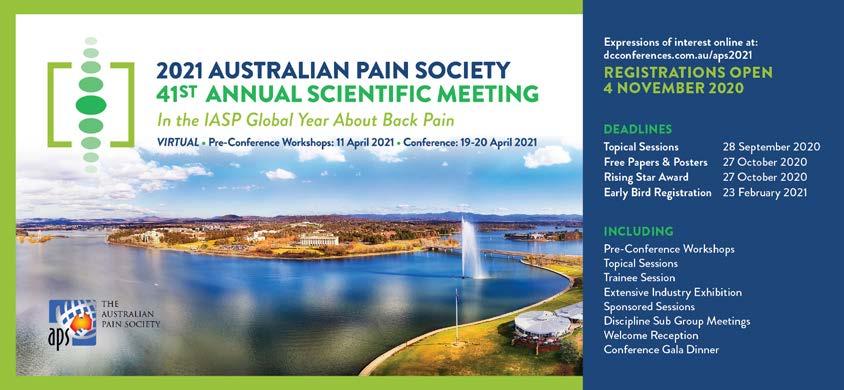
DC Conferences Pty Ltd
P: 61 2 9954 4400
E: aps2021@dcconferences.com.au

W: dcconferences.com.au/aps2021
New Members at 22 January 2021
Allan Basbaum is a professor and Chair of the Department of Anatomy at the University California San Francisco, USA. His research addresses the molecular mechanisms that underlie the generation of persistent pain after tissue or nerve injury.

Siri Leknes is a Professor of Social and Affective Neuroscience at the University of Oslo, Norway and a Senior Researcher at Oslo University Hospital. Her lab, the Leknes Affective Brain lab (LAB lab) studies how the brain and body give rise to pleasurable and painful feelings, and how these feelings are connected to decisions and behaviour.
Amanda C de C Williams is Reader (Associate Professor) in clinical health psychology at University College London; consultant clinical psychologist at the Pain Management Centre, University College London Hospital, UK; and research consultant for the International Centre for Health and Human Rights.


25 VOLUME 41, ISSUE 2, MARCH 2021 AUSTRALIAN PAIN SOCIETY NEWSLETTER EVENTS & NOTIFICATIONS
Professor Allan Basbaum
Professor Siri Leknes
Dr Amanda C de C Williams
JOIN US ONLINE


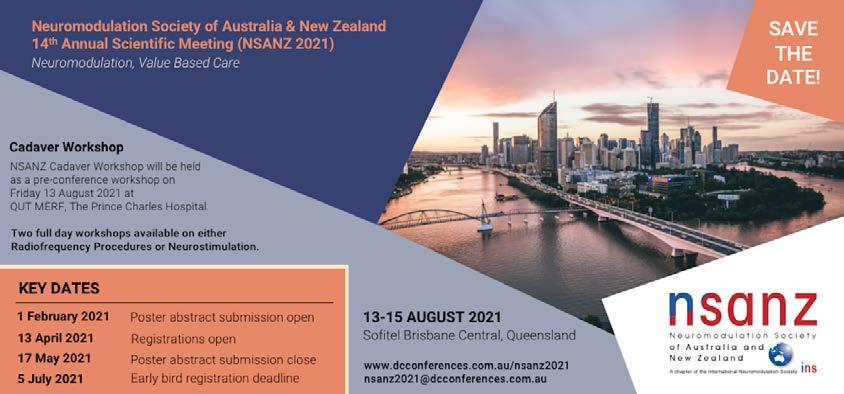

26 AUSTRALIAN PAIN SOCIETY NEWSLETTER VOLUME 41, ISSUE 2, MARCH 2021 EVENTS & NOTIFICATIONS 2021 FPM Virtual Symposium Friday 30 April asm.anzca.edu.au #FPM21MEL Register now





27 VOLUME 41, ISSUE 2, MARCH 2021 AUSTRALIAN PAIN SOCIETY NEWSLETTER EVENTS & NOTIFICATIONS Moving
15-17 October 2021 Millennium hotel Queenstown, New Zealand The 2021 Combined Spring Meeting of the Faculty of Pain Medicine and the Hong Kong College of Anaesthesiologists #painCSM21 Save the date Sydney Spine Society of Australia 32nd Annual Scientific Meeting International Convention Centre Sydney | 26 - 28 November 2021 www.dcconferences.com.au/ssa2021 SAVE THE DATE
with pain
FYI NEW!
• The Royal Commission into Aged Care Quality and Safety Final Report: https://agedcare. royalcommission.gov.au/publications/final-report
Other items of interest for our members:
• Latest opioid data from the Australian Bureau of Statistics: Opioid induced deaths in Australia. https://www.abs.gov.au/articles/opioid-induced-deaths-australia
• Australia’s annual overdose report 2019 from the Pennington institute: http://www.penington.org. au/australias-annual-overdose-report-2019/
• The Third Australian Atlas of Healthcare Variation: This series explores how healthcare use in Australia varies depending on where people live. It investigates reasons for variation that may be unwarranted, and provides specific achievable actions to reduce unwarranted variation https://www.safetyandquality.gov.au/atlas
• Painaustralia eNewsletter latest issue, available online at http://www.painaustralia.org.au/media/ enews
• ePPOC: electronic Persistent Pain Outcomes Collaboration: The electronic Persistent Pain Outcomes Collaboration (ePPOC) is an Australasian initiative that aims to improve the quality of care and outcomes for people who experience chronic pain. For more information about ePPOC, refer to the website: http://ahsri.uow.edu.au/eppoc/index.html
• PainHEALTH website: painHEALTH‘s aim is to help health consumers with musculoskeletal pain access reliable, evidence-based information and tips to assist in the co-management of musculoskeletal pain. painHEALTH is an initiative of the Department of Health, Western Australia. http://painhealth.csse.uwa.edu.au/
• Stanford University: CHOIR Collaborative Health Outcomes Information Registry https://choir. stanford.edu/
• Opioid Podcasts for GPs: These podcasts are produced by David Outridge GP, and FAChAM Trainee as a project under the auspices of Dr Steven Kelly Staff Specialist in Addiction Medicine, Kullaroo Clinic Gosford. A 20 week series from the Hunter Postgraduate Medical Institute (University of Newcastle): http://www.gptraining.com.au/recent-podcasts
• Airing Pain: Pain resources via an online radio show produced by Pain Concern, a UK registered Charity: http://painconcern.org.uk/airing-pain/
• Digital Health Guide: Developed by Primary Health Network Tasmania, check out the pain resources by accessing the link https://digitalhealthguide.com.au/Account/ LogOn?ReturnUrl=%2fSpecialtyFormulary%2f2 At login, Username: connectingcare, Password: health
• Indigenous Resources: New webpage on the APS website aggregating Indigenous resources: https://www.apsoc.org.au/Indigenous-Resources
28 AUSTRALIAN PAIN SOCIETY NEWSLETTER VOLUME 41, ISSUE 2, MARCH 2021 FYI
NPS MedicineWise resources:
• Choosing Wisely Australia – News & media: https://www.choosingwisely.org.au/news-events/mediareleases/choosing-wisely-resource-addresses-patient-opioid-knowledge-gap
• Over the counter codeine – changes to supply: https://www.nps.org.au/medical-info/clinical-topics/ over-the-counter-codeine-changes-to-supply
• Medicines with codeine – what you need to know: https://www.nps.org.au/medical-info/consumerinfo/medicines-with-codeine-what-you-need-to-know
• Information about opioids and chronic non-cancer pain: U-tube clip (5.39mins) https://www.youtube. com/watch?v=8R4RT0pUCf4&feature=share&fbclid=IwAR2dbhzgEAcc7B-ogq2a6Xhud5FDkbciPbdJ9 pb94GnQI6pAeifGd1VP-_I
• Opioids: Communications videos: https://www.nps.org.au/opioids-communication-videos
TGA
• Codeine information hub: https://www.tga.gov.au/codeine-info-hub
NSW Agency for Clinical Innovation resources:
• Brainman and Pain Tool Kit translations, SEP15: http://www.aci.health.nsw.gov.au/chronic-pain/ translated-resources
• Pain Management Resources: http://www.aci.health.nsw.gov.au/resources/pain-management
• Quicksteps to Manage Chronic Pain in Primary Care: http://www.aci.health.nsw.gov.au/chronic-pain/ health-professionals/quick-steps-to-manage-chronic-pain-in-primary-care
– Built into Quicksteps: “How to de-prescribe and wean opioids in general practice”: http://www.aci. health.nsw.gov.au/chronic-pain/health-professionals/quick-steps-to-manage-chronic-pain-inprimary-care/how_to_de-prescribe_and_wean_opioids_in_general_practice
• A list of helpful apps for consumers and clinicians now available at: http://www.aci.health.nsw.gov. au/chronic-pain/health-professionals/management-of-chronic-pain
• Chronic Pain in the ED: https://www.aci.health.nsw.gov.au/networks/eci/clinical/clinical-resources/ clinical-tools/pain-management/chronic-pain-in-the-ed
29 VOLUME 41, ISSUE 2, MARCH 2021 AUSTRALIAN PAIN SOCIETY NEWSLETTER FYI
Calendar of Events
These dates and events are current at the time of publication. Due to the current health concerns with COVID-19, we recommend you make your own enquiries before planning to attend
18-20 March 2021
New Zealand Pain Society Annual Scientific Meeting 2021 Making the ConnectionCortex, Culture and Community Copthorne Hotel, Bay of Islands, New Zealand
http://www.nzps2020.nz/
27 March 2021
Pain Association of Singapore Annual Scientific Meeting 2021
Online https://www.pain-asm.com
11 April 2021
Australian Pain Society 41st Annual Scientific Meeting-Pre-Conference Workshops Acute Pain, Fundamentals of Pain, Pain in Childhood, Pain Management in Aged Care, Basic Pain Research, Pharmacology in Pain Management and Physiotherapy in Pain Management
Online https://www.dcconferences.com.au/ aps2021/Pre-Conference_Workshops
19 - 21 April 2021
Australian Pain Society 41st Annual Scientific Meeting In the IASP Global Year Against Back Pain
Online https://www.dcconferences.com.au/aps2021/
27 April - 4 May 2021
Australian and New Zealand College of Anaesthetists (ANZCA) Annual Scientific Meeting 2021 Leaps and Bounds
Online https://www.anzca.edu.au/eventscourses/events/major-events/2021-anzca-asm
30 April 2021
Faculty of Pain Medicine (FPM) Symposium 2021
Pain medicine: The mysterious art
Online https://www.anzca.edu.au/events-courses/ events/fpm-events/fpm-national-events/2020faculty-of-pain-medicine-symposium
6 - 8 May 2021
Exercise & Sports Science Australia (ESSA) Research to Practice 2021
Online http://researchtopractice2021.com.au
19 - 21 May 2021
Australian & New Zealand Society for Geriatric Medicine (ANZSGM)
Annual Scientific Meeting 2021
Sofitel Melbourne on Collins, Melbourne, VIC http://www.anzsgmconference.org/
21 - 23 May 2021
Australian Rheumatology Association
Annual Scientific Meeting Hybrid with Satellite Hubs
Sydney
https://www.araconference.com/
9 - 18 June 2021
International Association for the Study of Pain (IASP) IASP 2021 World Congress on Pain
Online https://www.iaspworldcongress.org
23-25 June 2021
Occupational Therapy Australia
Inspired Insights for Brighter Futures - Hybrid Conference
Cairns Convention Centre, Cairns, QLD https://www.otaus2021.com.au
30 AUSTRALIAN PAIN SOCIETY NEWSLETTER VOLUME 41, ISSUE 2, MARCH 2021
CALENDAR OF EVENTS
13-15 August 2021
Neuromodulation Society of Australia & New Zealand (NSANZ)
Neuromodulation, Value Based Care
Sofitel Brisbane Central, Brisbane, QLD
https://www.dcconferences.com.au/nsanz2021/
2-4 September 2021
International Neuromodulation Society
2nd Joint Congress of the INS European Chapters
Palais des Congrès de Paris, France
https://e-ins.org/
10 - 12 September 2021
Royal Australian College of General Practitioners
GP21
https://www.racgp.org.au/gp21/gp21-home
20 - 23 Oct 2021
Australian College of Rural and Remote Medicine (ACRRM) and Rural Doctors
Association of Australia (RDAA)
Rural Medicine Australia - Respond. Recover. Reflect. Renew.
Crowne Plaza, Hunter Valley, NSW
https://rma.acrrm.org.au/register
21-23 October 2021
Australian Physiotherapy Association
APA 2021 Conference
Brisbane Convention and Exhibition Centre, Brisbane, QLD
https://australian.physio/pd/conferences-andmasterclasses
11-13 November 2021
Australian and New Zealand Association of Oral & Maxillofacial Surgeons
ANZAOMS 2021 Conference Hotel Grand Chancellor, Hobart, Tasmania
https://www.anzaomsconference.com.au/
26 - 28 November 2021
Spine Society of Australia
32nd Annual Scientific Meeting
ICC, Sydney, NSW
https://dcconferences.eventsair.com/ssa-2021/
24-27 March 2022
IASP Pain in Childhood SIG
ISPP 2022 13th International Symposium on Pediatric Pain: Diversity, Equity, Access
Cordis Hotel, Auckland, New Zealand
http://www.ispp2022.nz/home.html
20 - 22 May 2022
Australian Psychological Society College of Clinical Psychologists Complexity in Practice2021 Annual Conference
Sofitel Brisbane Central, Brisbane, QLD
https://www.psychology.org.au/APS-CCLINConf/2020
7 - 10 June 2022
Rehabilitation Medicine Society of Australia and New Zealand (RMSANZ)
5th Annual Scientific Meeting: Forging Alliances, New Horizons
Gold Coast Convention and Exhibition Centre, Gold Coast, QLD
https://www.dcconferences.com.au/ rmsanz2022/
31 VOLUME 41, ISSUE 2, MARCH 2021 AUSTRALIAN PAIN SOCIETY NEWSLETTER CALENDAR OF EVENTS
Vision, Mission & Priorities
Vision:
All people will have optimal access to pain prevention and management throughout their life.
Mission:
The Australian Pain Society is a multidisciplinary association whose mission is to advance pain prevention, management and clinical practice.
Priorities:
In order to achieve our mission, the Australian Pain Society will provide:
• Education
• Advocacy
• Research
• Services and resources
• Membership
• Good governance and operations
32 AUSTRALIAN PAIN SOCIETY NEWSLETTER VOLUME 41, ISSUE 2, MARCH 2021 VISION, MISSION & PRIORITIES
APS Directors
President:
A/Prof Anne Burke

Central Adelaide Local Health Network
Royal Adelaide Hospital
Adelaide SA 5000
Tel: 08 7074 2835 Fax: 08 7074 6247
President-Elect:
Ms Trudy Maunsell
Acute Pain Service
Princess Alexandra Hospital
Woolloongabba QLD 4102
Tel: 07 3176 5547 Fax: 07 3176 5102
Secretary:
Dr Will Howard

VIC
Tel: 03 9496 3800
Treasurer
Mr Tim Austin
Camperdown Physiotherapy
Newtown NSW 2042
Tel: 02 9517 1787 Fax: 02 9516 2491
ACT Director:
Dr Andrew Watson Calvary Hospital



Canberra ACT 2617
Tel: 02 6201 6352
NSW Director:
Dr Tim Ho

Inner West Pain Centre
RPA Medical Centre
Newtown NSW 2042
Tel: 02 9517 1764 Fax: 02 9517 1832
NT Director:
Ms Diann Black
Chronic Pain Service
Palmerston Regional Hospital
Holtze NT 0829
Tel: 08 7979 9502 Fax: 08 7979 9792
QLD Director:
Mrs Joyce McSwan
Gold Coast Primary Health Network
Persistent Pain Program, QLD
Tel: 0412 327 795 Fax: 07 3539 9801
SA Director:
Dr Michelle Harris

Royal Adelaide Hospital and Lyell McEwin Hospital
Adelaide SA
Email: michelle.harris2@sa.gov.au
TAS Director:
Mrs Dinah Spratt
Physiotas Physiotherapy
Shearwater TAS 7307
Tel: 03 6428 7500 Fax: 03 6424 7811
VIC Director:
Dr Laura Prendergast





Pain Service, Austin Health
Heidelberg VIC 3084
Tel: 03 9496 3134 or 03 5832 3020
WA Director:
Mr Shadreck Tozana
Functional Revival
Albany WA
Tel: 0437 541 165
33 VOLUME 41, ISSUE 2, MARCH 2021 AUSTRALIAN PAIN SOCIETY NEWSLETTER APS DIRECTORS
Office Bearers
Immediate Past President:
Ms Fiona Hodson
Hunter Integrated Pain Service
John Hunter Hospital Campus
New Lambton NSW 2305
Tel: 02 4922 3435 Fax: 02 4922 3438
SPC Chair:
A/Prof Kevin Keay



Department of Anatomy
University of Sydney
Sydney NSW 2006
Tel: 02 9351 4132 Fax: 02 9351 2817
IASP Liaison:
Professor Michele Sterling
RECOVER Injury Research Centre
University of Queensland
Herston QLD 4029
Tel: 07 3346 4793
Website: https://www.iasp-pain.org
Communications Coordinator:
A/Prof Anne Burke
Central Adelaide Local Health Network
Royal Adelaide Hospital
Adelaide SA 5000
Tel: 08 7074 2835 Fax: 08 7074 6247
Newsletter Editor:
Dr Lincoln Tracy
School of Public Health and Preventive Medicine
Monash University
Melbourne VIC 3004
Tel: 03 9903 0288
Newsletter Assistant Editor:
Dr Joanne Harmon




School of Clinical and Health Sciences
University of South Australia
Adelaide SA 5000
Tel: 08 8302 1442
PhD Scholarship Chair:
A/Prof Michael Farrell
Department of Medical Imaging and Radiation Services
Monash University
Clayton VIC 3800
Tel: 03 9905 6094 Fax: 03 9902 9500
Secretariat:
DC Conference & Association
Management Pty Ltd
PO Box 637
North Sydney, NSW 2059
Tel: 02 9016 4343
Email: aps@apsoc.org.au
Website: apsoc.org.au
34 AUSTRALIAN PAIN SOCIETY NEWSLETTER VOLUME 41, ISSUE 2, MARCH 2021 OFFICE BEARERS















































